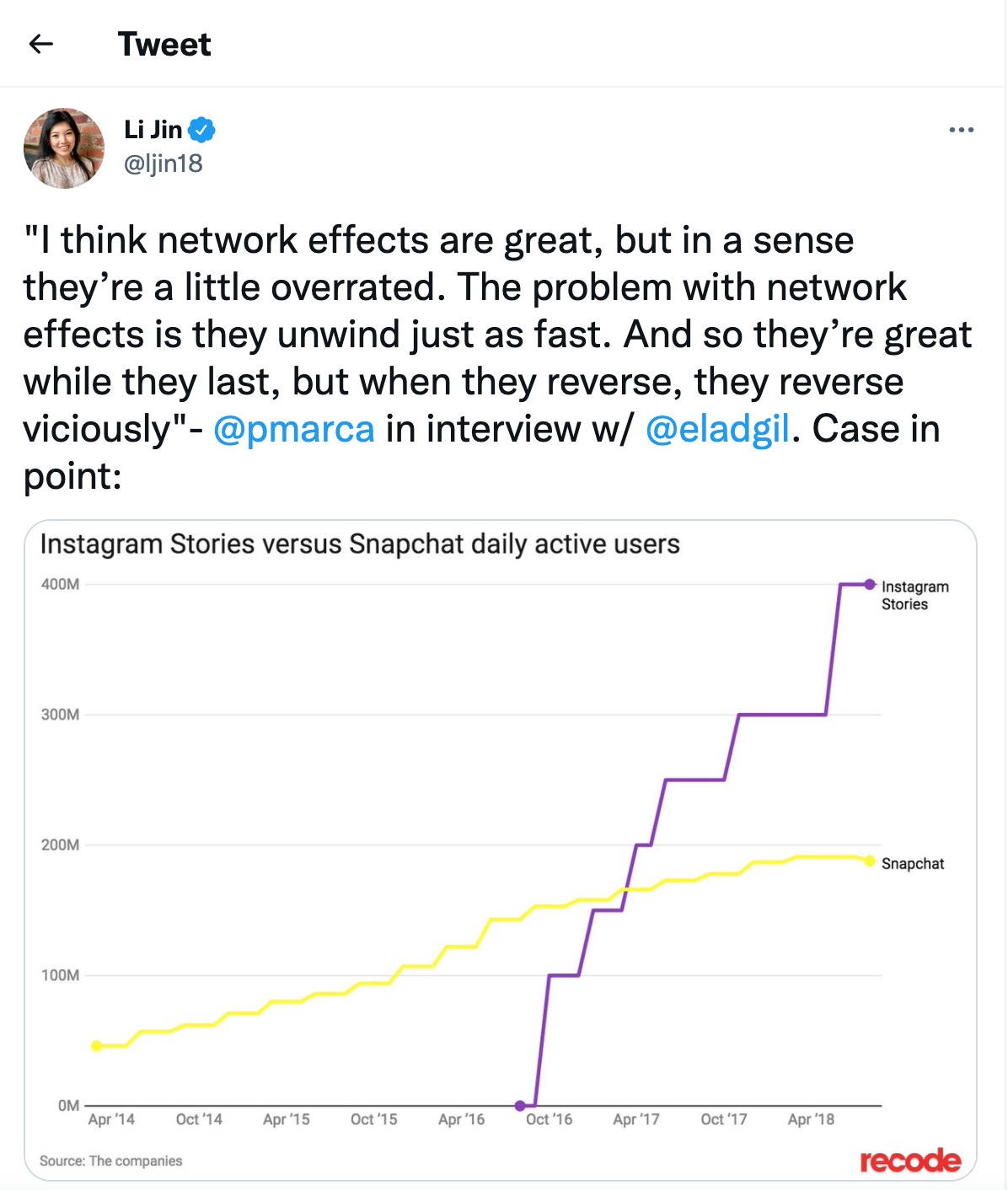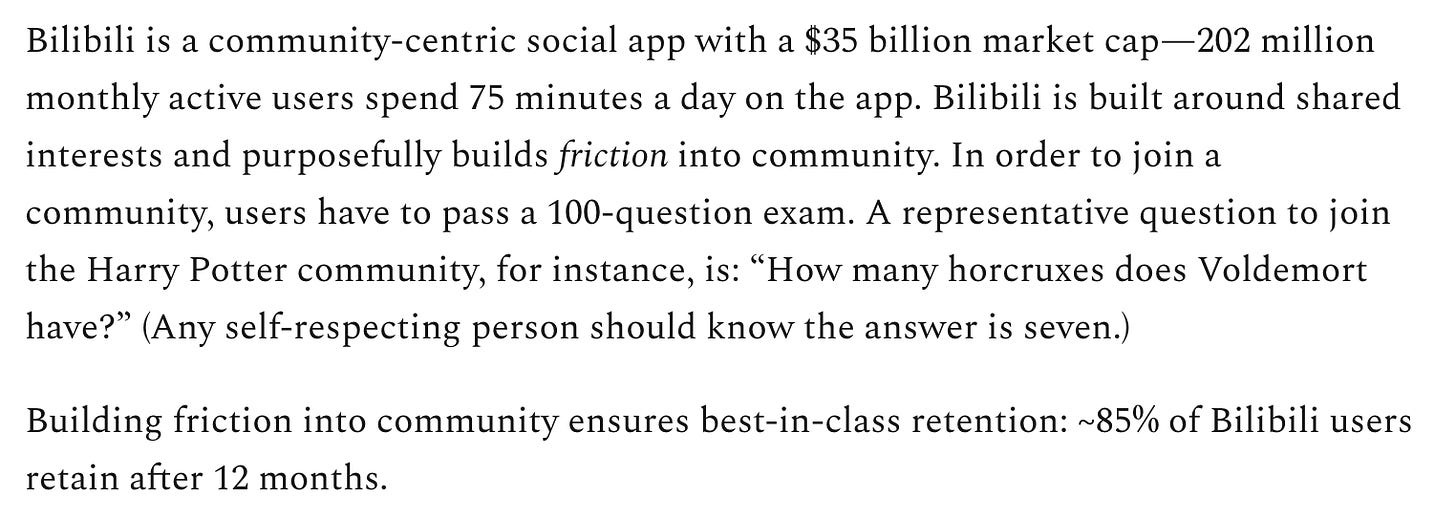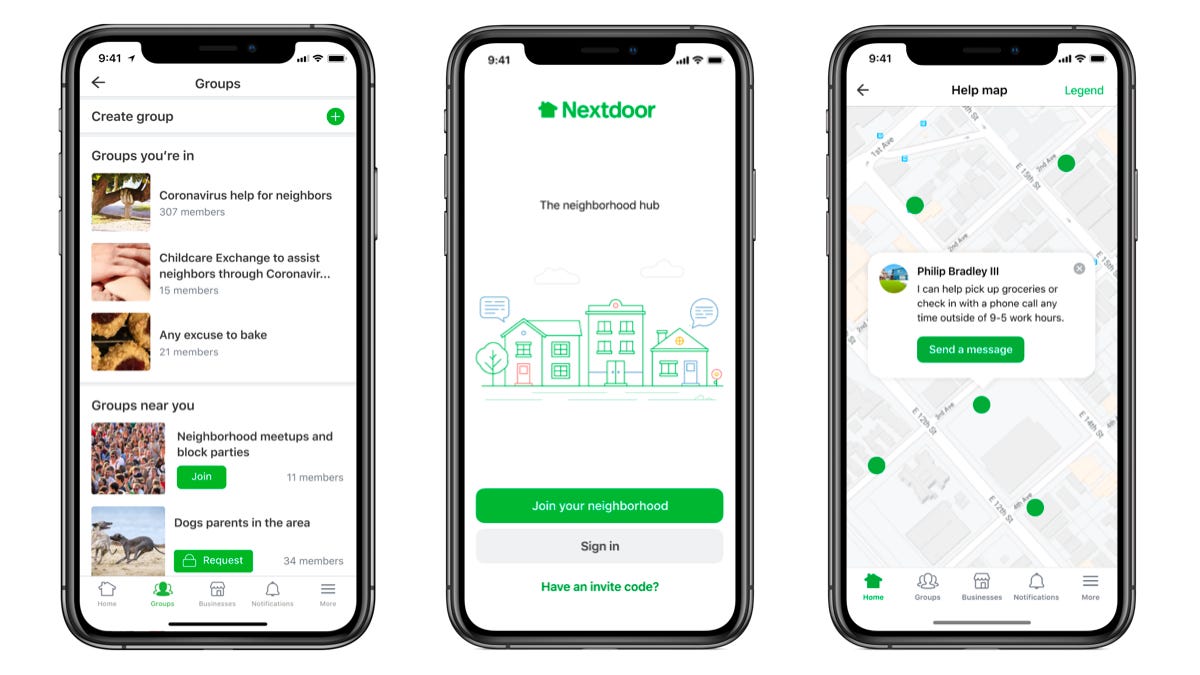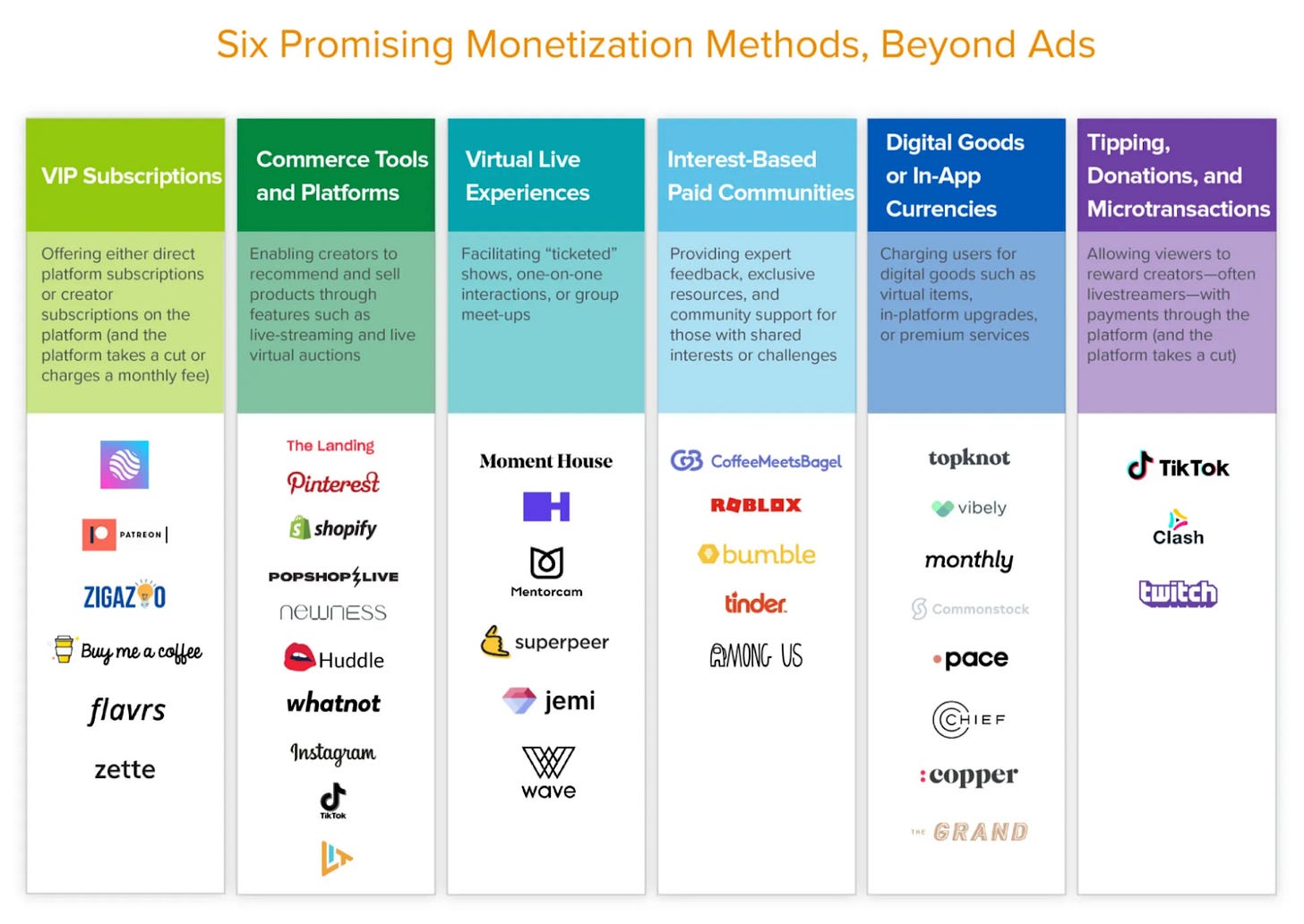🌊 Vertical Social Networks
Welcome! I’m Ivan Landabaso, VC at JME.vc. Join 1.9K+ entrepreneurs discovering new tech waves, startup trends & leverage bi-weekly (+ surfing 🤙)
Summary
🌊 Wave: Vertical Social Networks.
🦾 Leverage: Personal Monopoly.
🇪🇸 Deals: Devo, Clikalia, Multiverse and more!
Vertical Social Networks 🕸️
If you are interested in the evolution of social networks, the implications of reverse network effects and what you should be paying attention to in this space - read on as my friend Riki Porta Valero from Facebook takes you down the rabbit hole.
😟 Problem
If one thing became clear in the last two decades for Silicon Valley’s brilliant minds is that network effects have been the holy grail of Internet startups.
From Reid Hoffman on his masterpiece Blitzscaling to Andreessen Horowitz’s must-read 85-slides deck, all tech gurus claimed the following: companies that exploited network effects experienced rapid growth rates and played a successful role in industries with winner-takes-it-all dynamics—Twitter, LinkedIn, Facebook and Youtube to name a few. And while there is no doubt that there is a strong correlation between scale and value in businesses with network effects, we tend to think that they only move in a positive direction.
Yes, reverse network effects do exist. Effectively, they work the other way around when the information or content created by new users lowers the value for the existing ones. The reverse network effects’ flywheel works the following way:
With over half the world's population now using mobile Internet, platforms have been applying low-friction strategies on users' content creations in order to reach critical mass faster, as demonstrated by Tiktok hitting 1 billion MAUs three weeks ago. Despite the progress that platforms are making on the AI/ML front, scaling content curation and customization is still a challenge—making it harder for users to distinguish the best content amongst the rest.
Signal-to-noise ratio is the new metric:
Signal to noise ratio is the measure of how much cruft we have to work through to get to the heart of the message.
The discussion to have when your message isn’t getting out is: Is the world too noisy, or is our signal too weak?
The internet is the noisiest communication medium ever developed at scale. And often, it has vanishingly small signal as well.
- Seth Godin
🤩 Solution
A vertical community is a social network based on specific interests and passions. While the network itself consists of community members with shared hobbies—like, say, reading, gaming, or fantasy sports—these apps offer niche-specific features that allow members to further engage with each other. Vertical communities can also better curate content for users; many offer tiered access to various content and features according to the depth or user value.
Considering that many users on general social media platforms can get lost among irrelevant content, Vertical Social Networks represent an outstanding opportunity to generate meaningful interactions. By tapping into niche audiences, users get surrounded by like-minded individuals, becoming much easier for them to bond and connect with each other.
To avoid reverse network effects, Vertical Social Networks leverage curation of access (choose who gets access to the platform) or curation of contributions (scale the ability of the system to curate content as it grows larger). For instance:
Bilibili, a leading Chinese video platform for young generations, builds friction to step into their communities:
Nextdoor, a US-based social platform that connects neighbors based on their location, focuses on content curation:
When it comes to monetization strategies, Vertical Social Networks are forced to look beyond the traditional ad model:
⏳ How we got here
As mentioned by Ariel Renous in “The Future of Social”, the first wave of social platforms could take either of two forms: decentralized (Ning, founded by Marc Andreessen and Gina Bianchini in 2004, allowed anyone to create a social network) or centralised (both Facebook and Myspace appeared at that time too).
The question then was: Would Internet Social be centralized or decentralized? Will there be one big winner or the multiplication of smaller-scale communities? Both companies started off pretty well: Ning raised US$119m in four years and Facebook got rapidly seeded by Accel and Peter Thiel.
The rest is history. Ning was acquired by Glam Media for $150M in 2011, when Facebook reached more than 800 million MAUs. But far from being wrong, Ning was “just” 15 years ahead of time.
We are moving towards micro-communities
People in niche communities are there because they are genuinely passionate about a particular subject. Niche communities focus on specific topics, have higher engagement, people feel safe which increases trust and gives them a sense of belonging.
With micro-communities on the rise and Vertical Social Networks already capitalising on this trend, the biggest social platforms are shifting to promote smaller, more enclosed network activities—as seen with Facebook’s first-ever super-bowl ad highlighting the diverse uses of Facebook groups.
There is a real opportunity to connect more of us with groups that will be meaningful social infrastructure in our lives. More than one billion people are active members of Facebook groups, but most don't seek out groups on their own—friends send invites or Facebook suggests them. If we can improve our suggestions and help connect one billion people with meaningful communities, that can strengthen our social fabric.
- Mark Zuckerberg, 2017
What’s more, Facebook’s New Product Experimentation team is already launching new standalone consumer-focused apps in order to see whether people find certain features engaging:
Tuned is an app for couples to create, save and celebrate artifacts from their relationship.
Forecast is a community for crowdsourced predictions and collective insights.
BARS empowers rappers to create and share.
Collab is an experimental music-making app.
Venue brings passionate fans and expert commentators together to experience live events in a new interactive way.
🚀 My favourites
Balio (Spain) is in-between finance and social (from online courses to community discussions).
Wagr (US) offers a social and simple betting experience to challenge your friends.
Supergreat (US) is a community of real beauty fans sharing routines, reviewing products and shopping daily drops.
Vital (Spain) is Strava for health (allowing you to optimize your health, connect your wearables and challenge your friends). Launching soon, building in public here.
Ladder (US) is a professional community platform for Gen Z.
👌 Hacks
Community-as-a-service tools for both creators and businesses:
Come for the tool, stay for the network—move from a single-player tool to a vertical social network as a way to create defensibility and increase engagement. As discussed in the “The Future of Social”, Strava is a great example.
🐇 Follow the White Rabbit 🕳️
🦾 Personal Monopoly
A great way to internalise the “skill-stacking” principle: think about building your own personal monopoly.
If you combine and sharpen your skills - ideally leveraging your natural talent, interests and specific knowledge - you can develop a personal monopoly.
Next, take your personal monopoly and ensure you are helping society get something it wants that it hasn’t yet figure out how to get (as Naval would put it).
💵 Recent Deals In Spain
You love startups and want to enjoy a Spanish lifestyle? Come join the Spanish startup ecosystem. Here’s a list of recently funded startups:
Devo (cybersecurity) raised 215M
Clikalia (proptech) raised 50M
Holaluz (energy) raised 11M
Multiverse (quantum computing) raised 10M
Ezzing Solar (energy) raised 4.5M
Vitaance (insuretech) raised 3M
Weecover (insuretech) raised 2.3M
MOA Foodtech (foodtech) raised 1.5M
Hamelyn (ecommerce) raised 1M
Shakers (marketplace) raised 800K
Ecomagnet (magnetism) raised 700K
Tuio (insuretech) raised 450K.
Spathios (proptech) rasied 370K
Capri Bikes (electric bikes) raised 250K
Zikness (3D printing) raised 220K
Newe raised 170K
And that’s it! Would really appreciate a share on Twitter if you enjoyed it 🙏🙌










Amazing read! Keep it up buddy!
Vertical social networks for the Win! 🚀